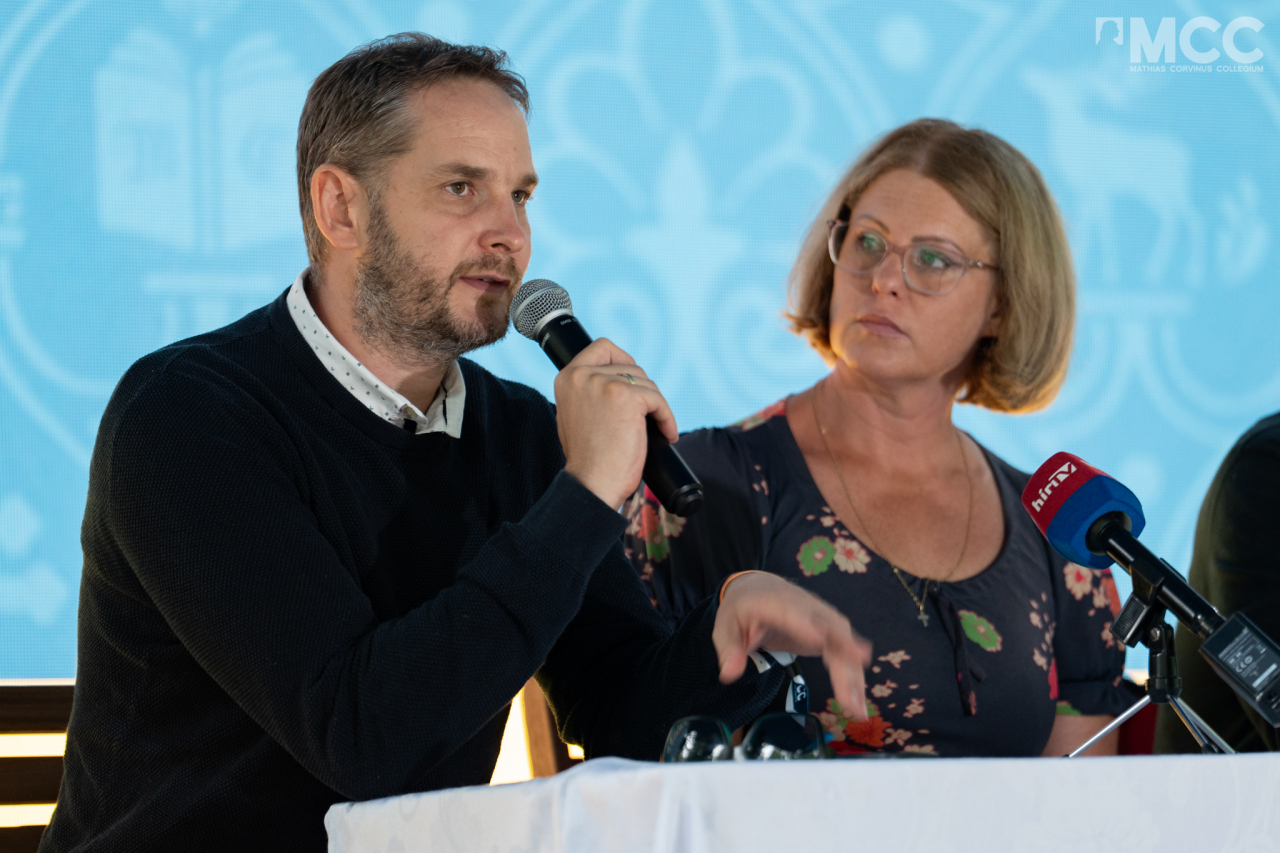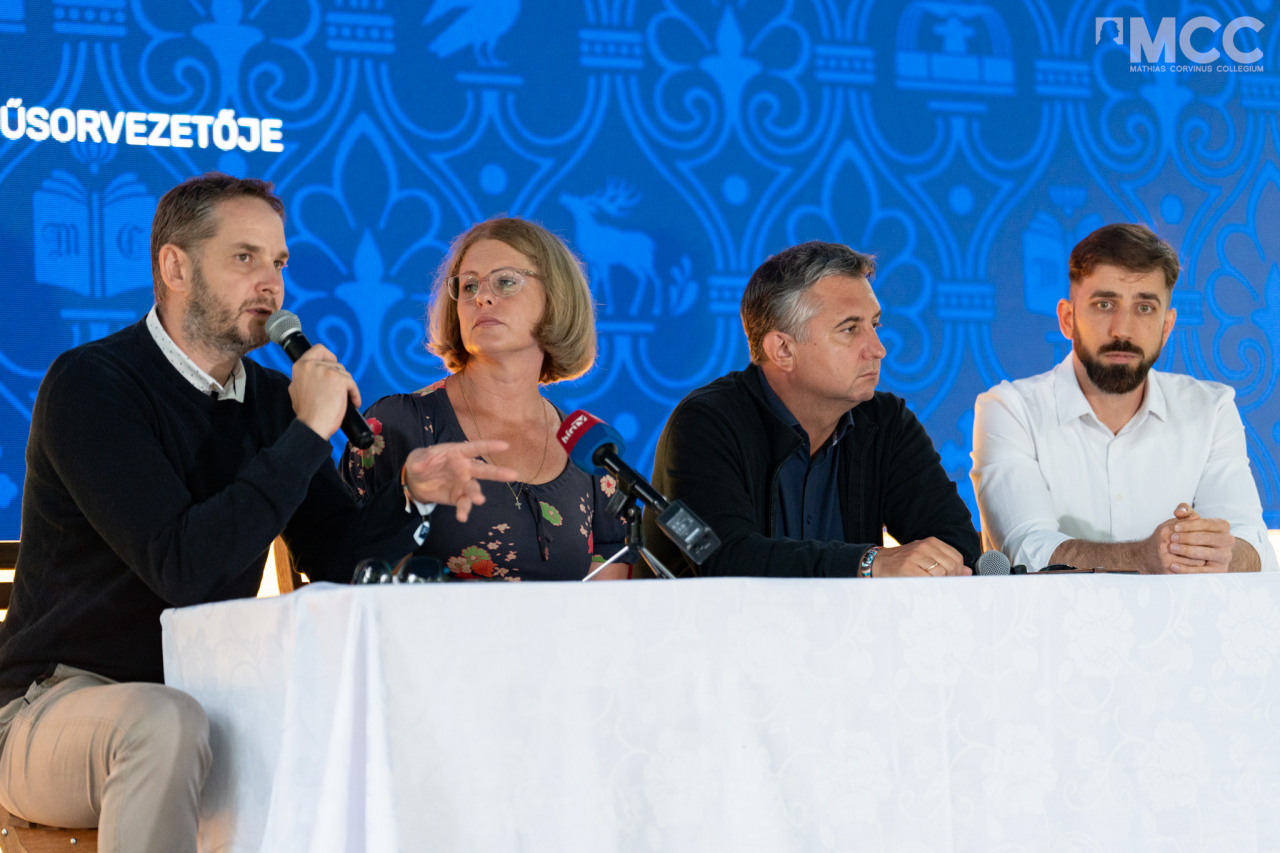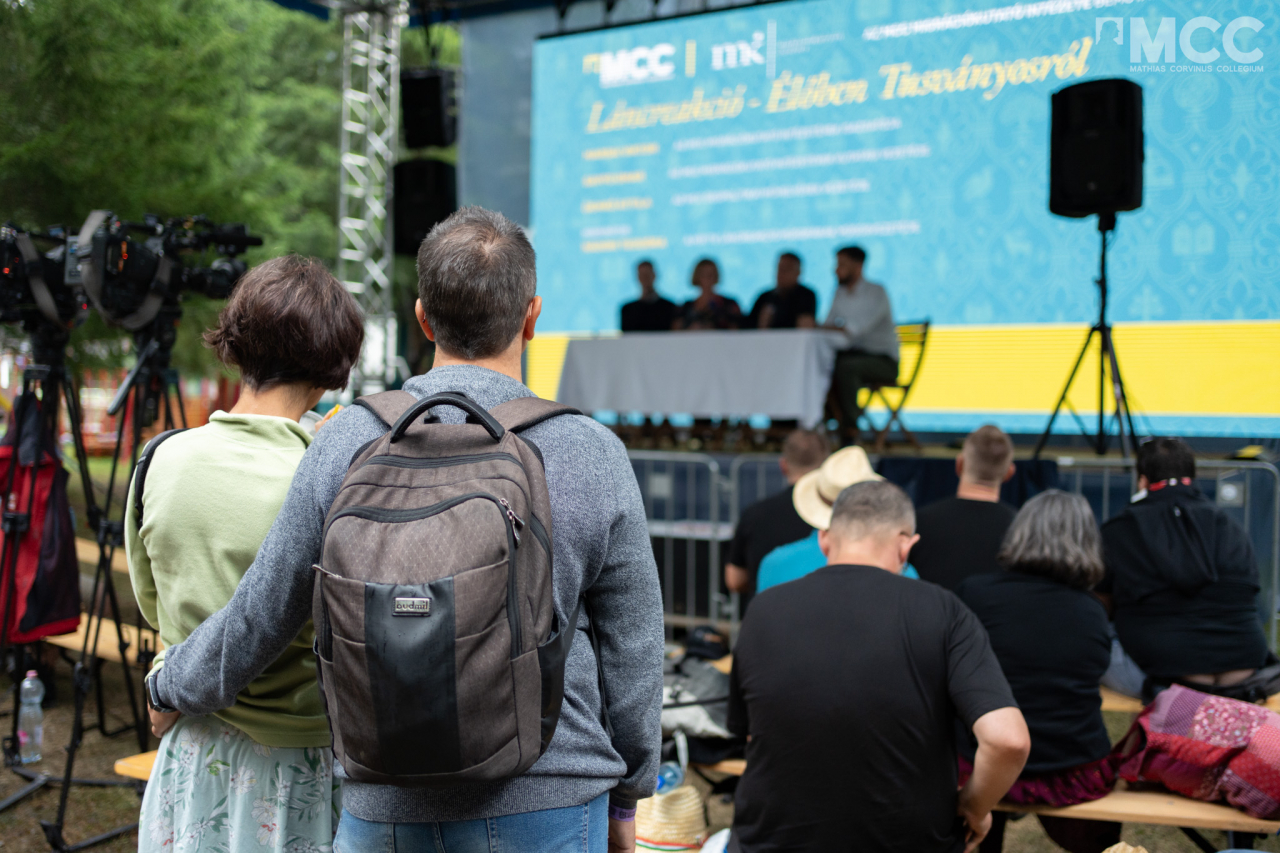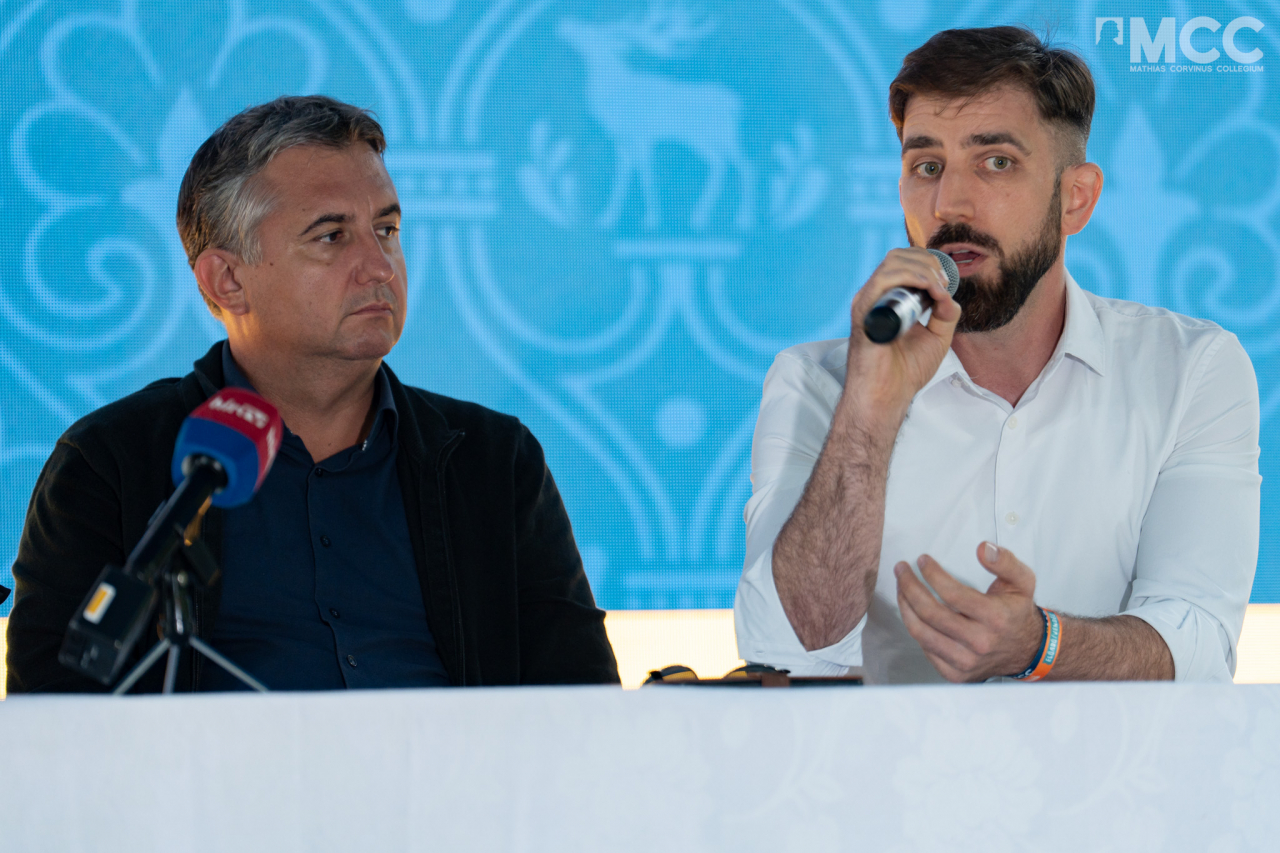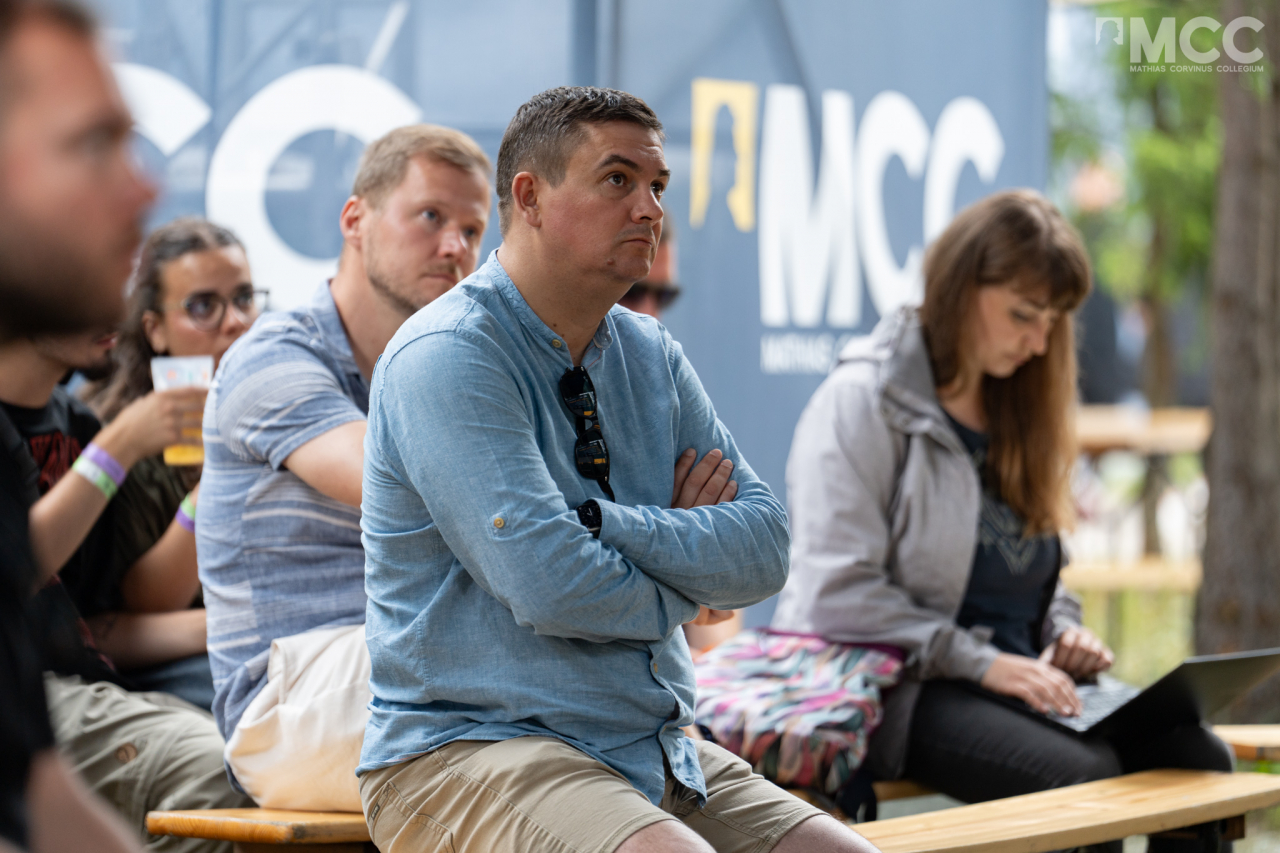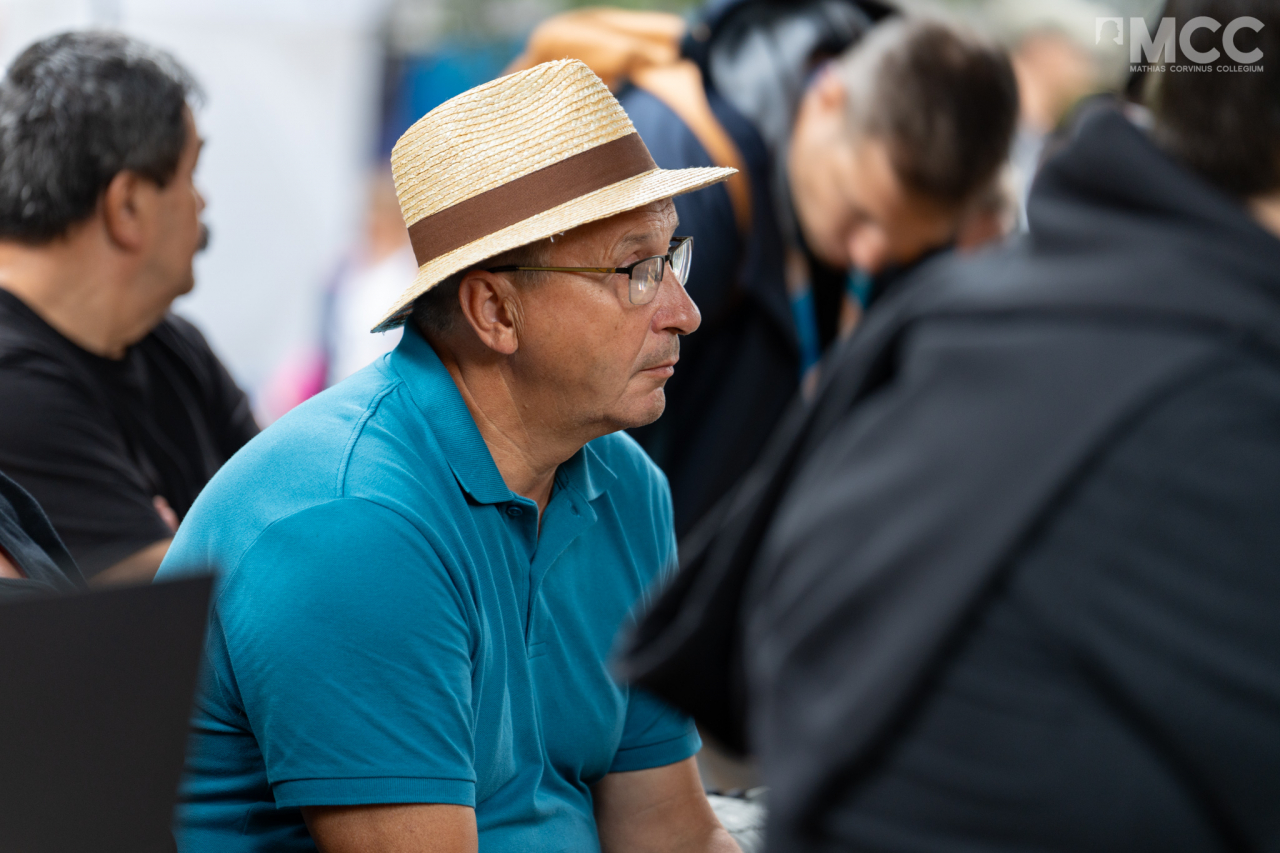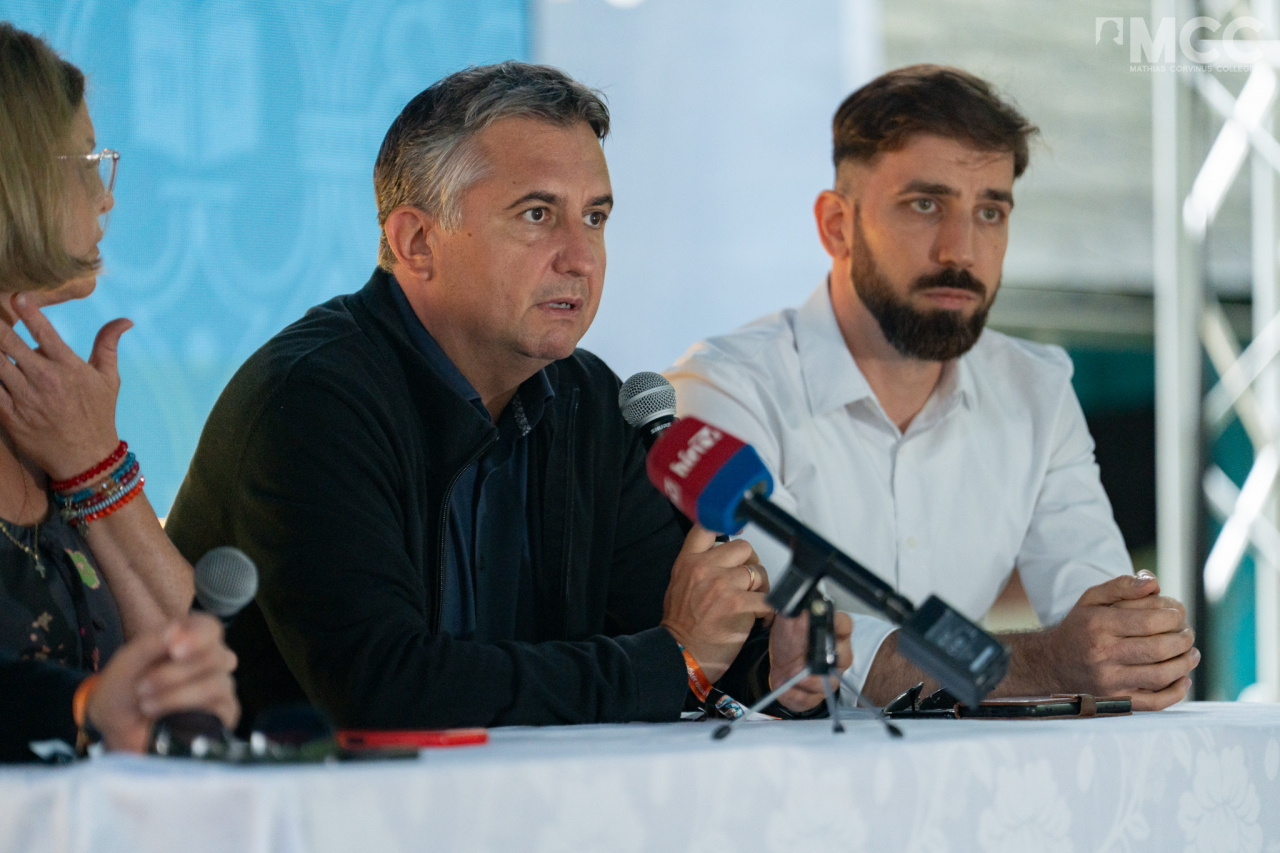Reading time: 3 minutes
Experts invited by the Migration Research Institute of the MCC analysed a topical issue on the first day of Tusványos, on 24 July. Dr. Viktor Marsai, Director of the Migration Research Institute, Dr. Omar Sayfo, Senior Researcher of the Institute and Dr. Attila Demkó, Head of the School of Geopolitics , discussed the current situation of immigration to Europe with Teodora Nádori, host of Hír TV, and looked at the economic and political developments in the Middle East and Africa.
Invitees first reflected on the preparations for the Paris Olympics, mentioning the tight security measures and the high level of terror preparedness. Attila Demkó pointed out: Immigration has been a problem in France since the 70s and 80s, with large isolated blocks of land in the French suburbs and a failure to integrate people from former colonies. In fact, almost all French cities have areas where the state has been excluded, so that the country is not in full control of its own streets.
In the discussion, the question was raised about the book "Who owns the space?", published by MCC Press. - Parallel societies and urban enclaves in Western Europe, by Omar Sayfo, Viktor Marsai and György Kristóf Veres. The book analyses this very topic by looking at immigrant neighbourhoods in different European countries.
Speaking on the MCC stage in Tusványos, Omar Sayfo said that the issue of integration has a different face everywhere. In France, the situation is problematic because immigrants are physically distanced from the population, hybrid cultures have developed and there is a strong sense of exclusion. In Germany at least there was closer contact, mainly due to inner-city housing. Mr Marsai added that the issue of imported conflicts in these regions also needs to be taken into account, as the immigrant communities that arrived from the 1990s often brought with them conflicts from the countries of origin, and these are challenges that leaders are not necessarily able to deal with. A key element of the solution is who young people accept as their authority.
Invitees also mentioned that a high percentage of young people in African countries want to leave their country, which is understandable given the economic situation, difficult living conditions and armed conflicts in several countries. Mr Marsai pointed out that the Sahel region has become one of the most intense geopolitical rivalries, with many players trying to maximise profits, and is negotiating with several major powers, such as China and Russia, which are also major players in Africa. Attila Demkó said that the Chinese are trying to develop deep relations and have regular meetings with African leaders. Although they do not help out of good intentions, they see the continent as a resource, pragmatic and profit-oriented, and do not tie aid or business deals to their commitments. Western countries, on the other hand, link aid to religious or ideological demands that are alien to African societies and are therefore slowly being pushed out of the region.
According to Omar Sayfo, European policies are failing in the Middle East, but even more so in sub-Saharan Africa, where many people are fighting for few resources. The expert believes that it is not certain that the conflicts can be resolved in a European sense, or even frozen. It is also a fact that the major powers are getting involved in these conflicts in such a way that their own citizens and economies are not affected.
